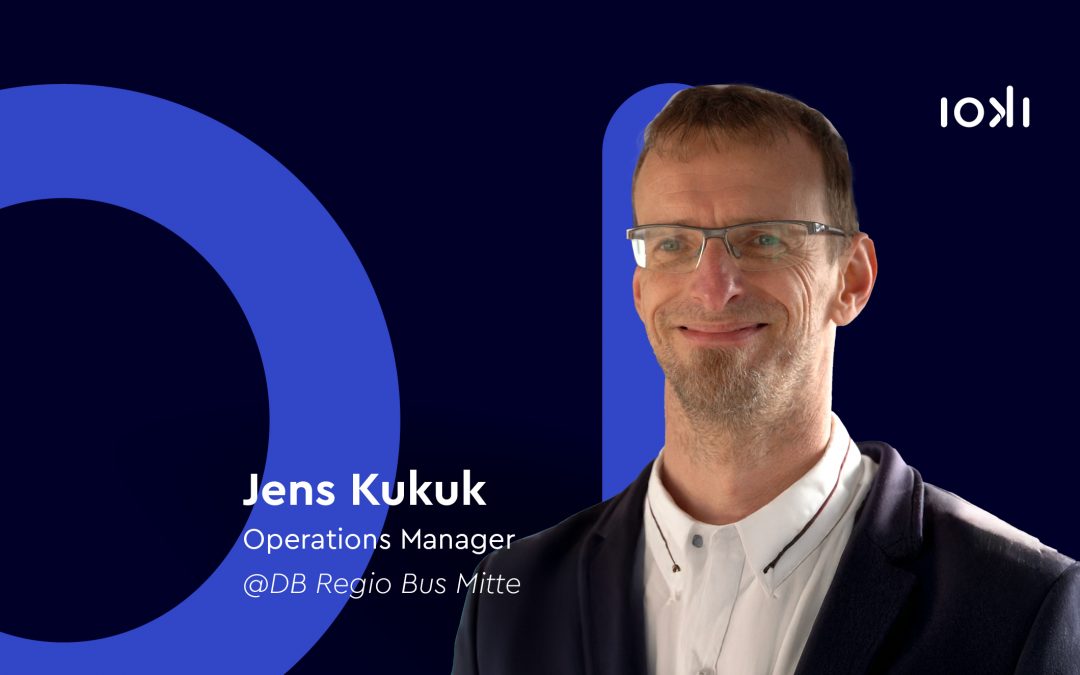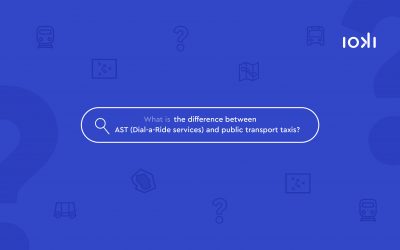The focus is on the development of new, digital applications for citizens. From more efficient street lighting to modern mobility solutions: The initiative considers all problems in a holistic context and benefits above all from the diversity and expertise of its project partners.
With DB Regio and ioki, for example, the “Stadt in Bewegung” initiative has brought on board two partners for all mobility-related issues. “Traffic jams, lack of parking spaces, air pollution – the topic of mobility is more present in cities than ever before. We can only achieve a positive turnaround in current developments if we offer local citizens sustainable, efficient and needs-based alternatives. Our goal must be to develop new services together with all actors from politics, administration and industry and to make the existing traffic flow as efficient as possible,” says Klaus Müller, CEO of DB Regio Bus, summing up the incentive of the two partners.
But what about the Germans’ perception of mobility? What do citizens think about local public transport and the mobility services available in the various regions? What wishes do cities and municipalities see themselves confronted with when it comes to traffic and mobility? The opinion research institute Civey has investigated all these questions in the name of the initiative “Stadt in Bewegung”.
Urban-rural divide
The core results of the survey show that almost three quarters of Germans (69.8 percent) support the use of digital solutions to improve traffic flow, especially in urban areas. At the same time, however, the study also reveals a strong gap between urban and rural areas. While specific factors such as travel times, price and reliability play a role in cities, respondents from rural regions state that there is potential for improvement in the general availability of mobility services. Michael Barillère-Scholz, CEO of ioki, explains: “When new mobility services were established, rural areas often remained underrepresented in recent years. The result? The private car is still the undisputed leader here. Innovative solutions, such as on-demand mobility, can offer a cost-efficient and sustainable alternative and complement and strengthen the existing local public transport system.
The majority (52.7 percent) of those surveyed would like to see additional services and new solutions for rural areas in order to strengthen the existing public transport system and close gaps in the transport offer.
As a project partner of “Stadt in Bewegung” and a wholly-owned subsidiary of Deutsche Bahn, we at ioki are starting at exactly this point. Through smart on-demand mobility, we want to bridge the first and last mile in a demand-oriented way and thus turn local public transport into a real and, above all, sustainable alternative to private cars. To do this, we either digitize existing offers or integrate ourselves seamlessly into the existing infrastructure as a new solution. “Our goal: More mobility and less traffic – for everyone, everywhere and at any time”, is how Barillère-Scholz outlines our claim to the mobility of the future.
Data-based approach
The decision as to which solution makes the most sense for which operating area is made in close consultation with our customers and based on data within the framework of a detailed Mobility Analytics. According to the Civey study, 42.9 percent of those surveyed also see a significant advantage in this: because traffic flows can be optimized through a better exchange of traffic-related data, as those surveyed expect.
With the “Stadt in Bewegung” initiative, the various business organizations are facing up to the mobility challenges described above, but are also letting their eyes wander and are striving for close cooperation with the responsible decision-makers and politicians. Because: “Only through close interaction between business, politics and society can the digital transformation be successfully promoted at the municipal level,” says Müller.
The “Stadt in Bewegung” initiative recognizes the responsibility that cities, municipalities and the like have in times of digitisation and offers itself both as a sparring partner and as a strong group of experts on the road to a smart city.



